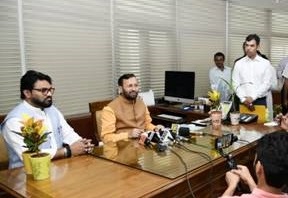Six months into the pandemic, and we all have seen how critical is the robust connectivity for us to remain relevant and work effectively. As stringent social distancing measures continue to prevail across the country, enterprises are beefing-up their digital transformation strategy to implement solutions that can strengthen their operational efficiency, enable their employees and users to collaborate, and uncap innovation smoothly.
Before the COVID-19 became a pandemic, concepts such as digital transformation were primarily confined to the IT industry. However, a lot has been changed in the last few months, prompting organizations to rethink their digital strategy. Digital transformation is now mainstream and has paved the way for new ways of living across all sectors and industries. Virtual town hall meetings and webinars are no longer considered exclusive. Almost every establishment is now leveraging cloud computing and digital technologies to develop new or alter existing enterprise processes and culture to align with the changing customer requirements.
Technology assisting in the new normal
Enterprises worldwide are innovating their business processes with digital transformation strategies and identifying novel ways of empowering their people and customers to improve business risk resiliency. The healthcare industry, for instance, is pondering the concepts of virtual ICUs with patients being at home and the treatment being managed remotely. There is also a massive rise in tele-consulting. Many senior citizens who had limited or no knowledge about mobile applications are receiving treatment through web-conferencing tools such as Zoom or Meet.
The banking sector has leveraged technologies such as data science, robotics, and automation for convenient virtual customer engagement and secure banking experience. (See: ICICI Prudential extends coverage of conversational AI Ligo and AI in banking now geared for a takeoff)
Similarly, automotive retail barriers will be transformed through augmented reality, video, and other technologies. Consumers may not be needed to visit retail showrooms to do a test drive and purchase an automotive vehicle.
In India, manufacturing is one of the most adversely affected sectors that could not escape the wrath of coronavirus. This is primarily because of their sluggish approach toward the adoption of digital technologies.
From now on, as manufacturers gradually open-up their plants, they would be highly dependent upon digitization and related technologies such as cloud, IoT, automation, analytics, and artificial intelligence for the business revival and growth. Nevertheless, like all organizations, the safety of employees will be of paramount importance, and technology will continue to play a significant role in that aspect.
Technology transformation lighting the way toward a new era
There is no doubt that COVID-19 has catalyzed a new tech revolution. For most global organizations, the stay-at-home mandate likely to remain in place for an unforeseeable future. And hence, there has been a greater acceptance of working remotely across enterprises.
Many technology leaders with whom we interacted recently feel that despite the disruption, the impact would be a lot more positive in the longer run. (See: Sunit Vakharia, Chief Technology Officer, U GRO Capital, and Chandresh Dedhia, Head of Information Technology, Ascent Health)
IT heads are busy evaluating their networks and implementing network monitoring tools and technologies, identity management, data encryption, and governance and compliance solutions to make their systems secure and efficient. These tools can equip IT teams to maintain the overall organizational IT infrastructure for a disbursed remote workforce, and diagnose the problems promptly.
Analytics and AI would continue to play a more significant role in driving enriching experience for employees and customers. The next twelve months will see faster adoption of transformative technologies such as the internet of things (IoT), Blockchain, and robotic process automation (RPA). These technologies will be used to build contactless solutions and strengthen process efficiencies. Customer Organizations will be seen ramping-up their research and development initiatives to kick-start the economy.
Across all sectors, new technological developments and innovations will form the basis of all boardroom discussions. By the time the impact of the pandemic will subside, most of the enterprises would be transitioned into a different era altogether. There will be greater adoption of online ways of functioning. Networks will be transformed, and the connectivity landscape will be strengthened. This will fundamentally change how organizations operate and deliver, ultimately drive unique revenue streams for businesses. Overall, these changes will help us prepare better for a crisis like this in the time to come.







0 Comments